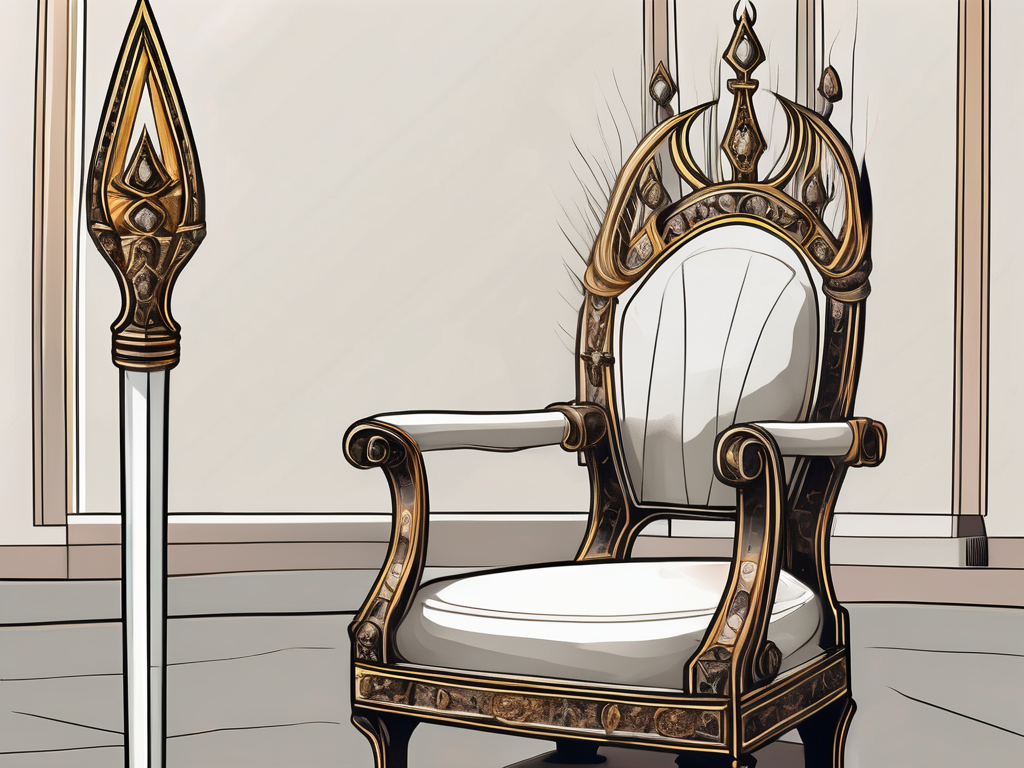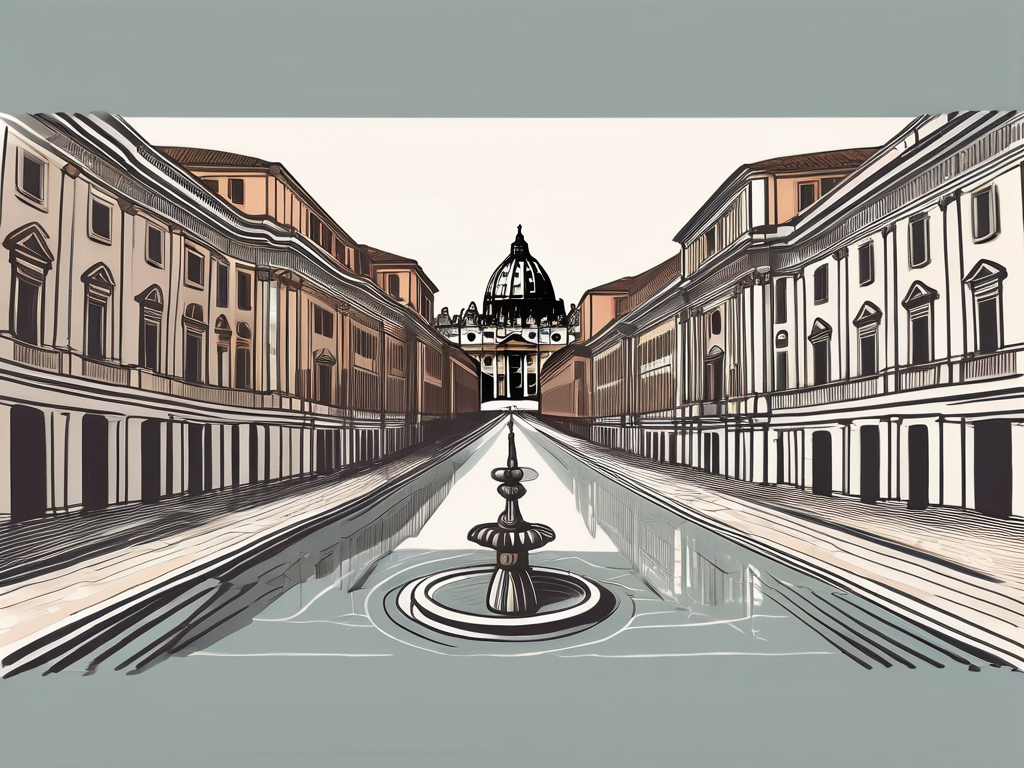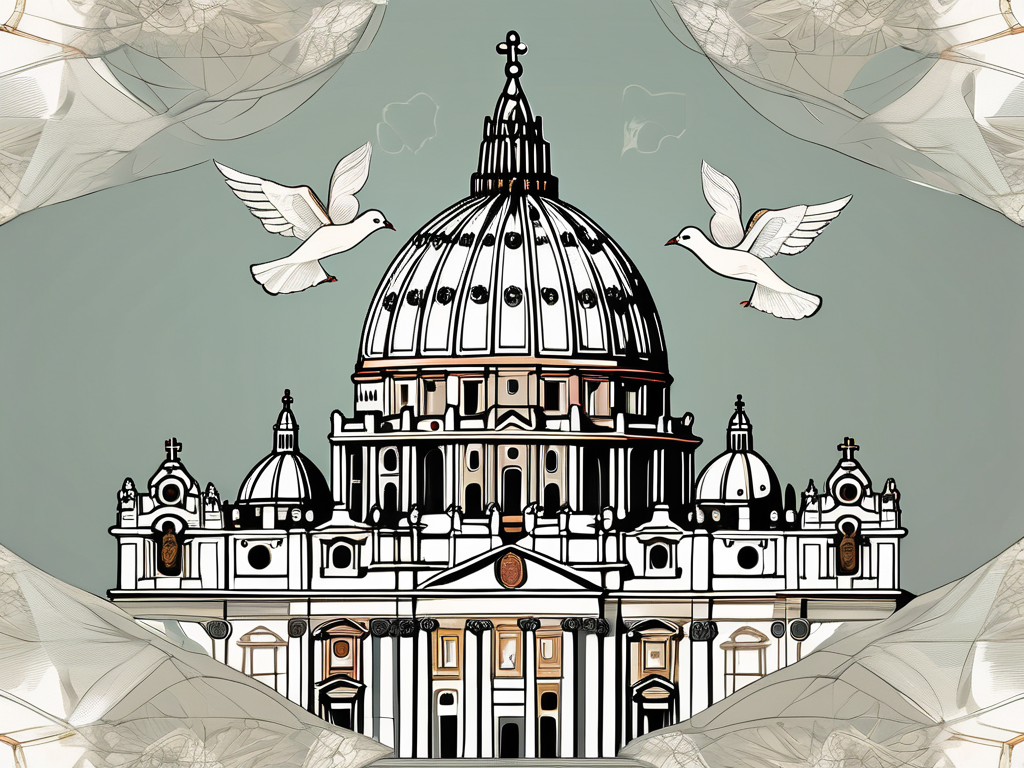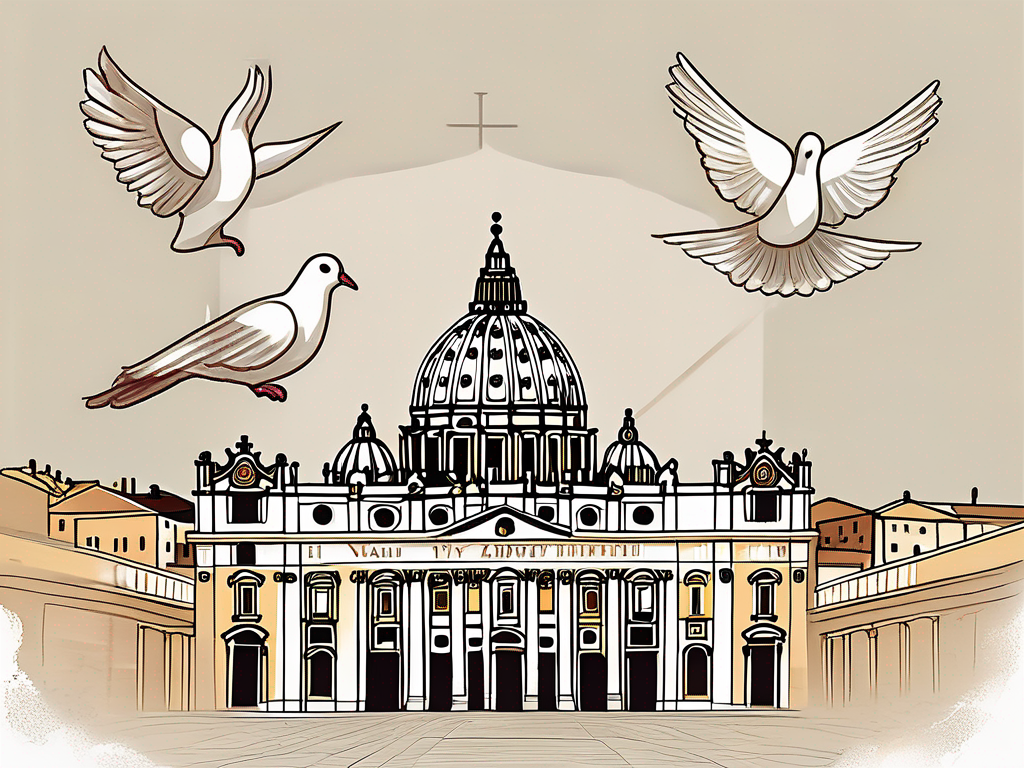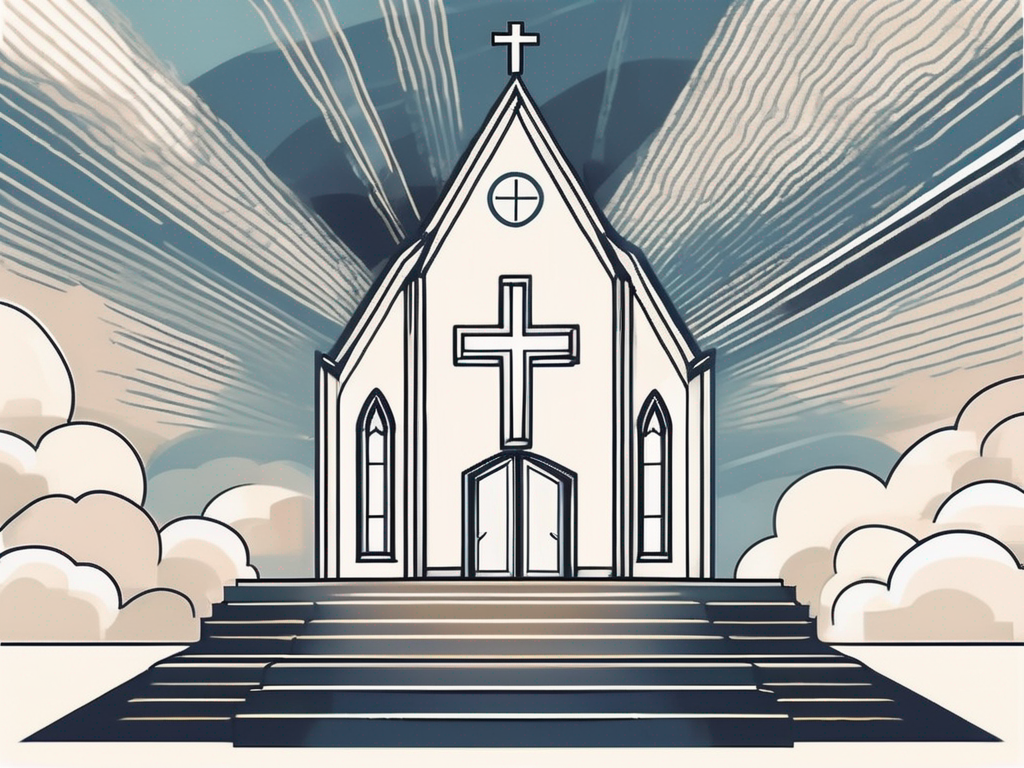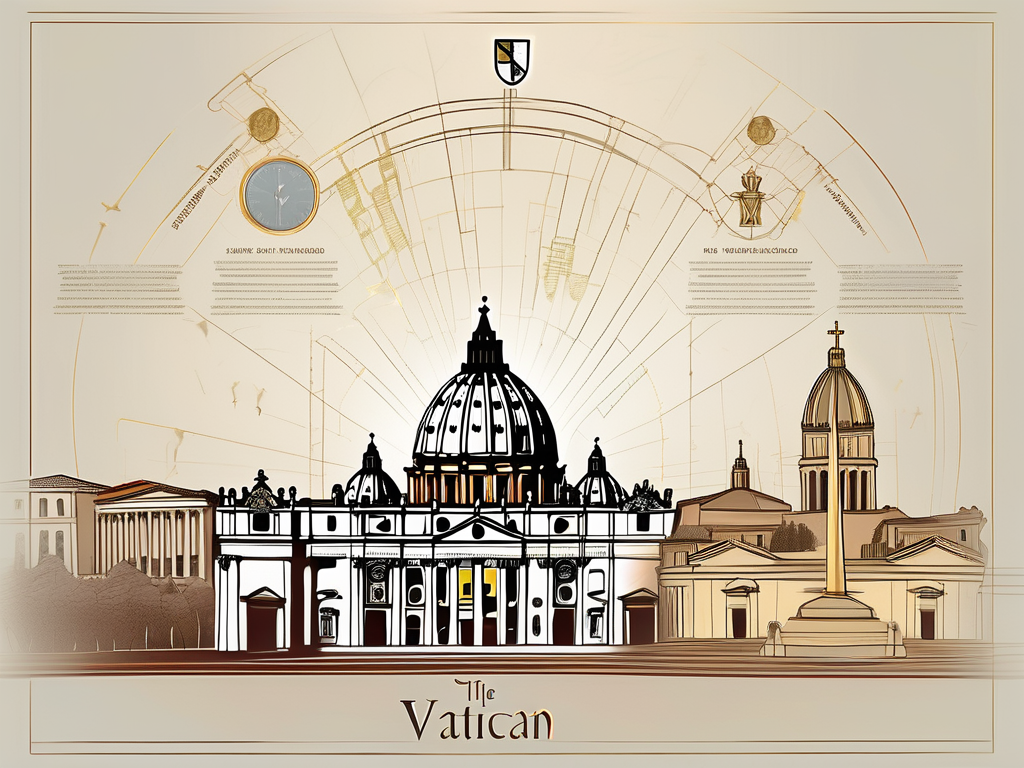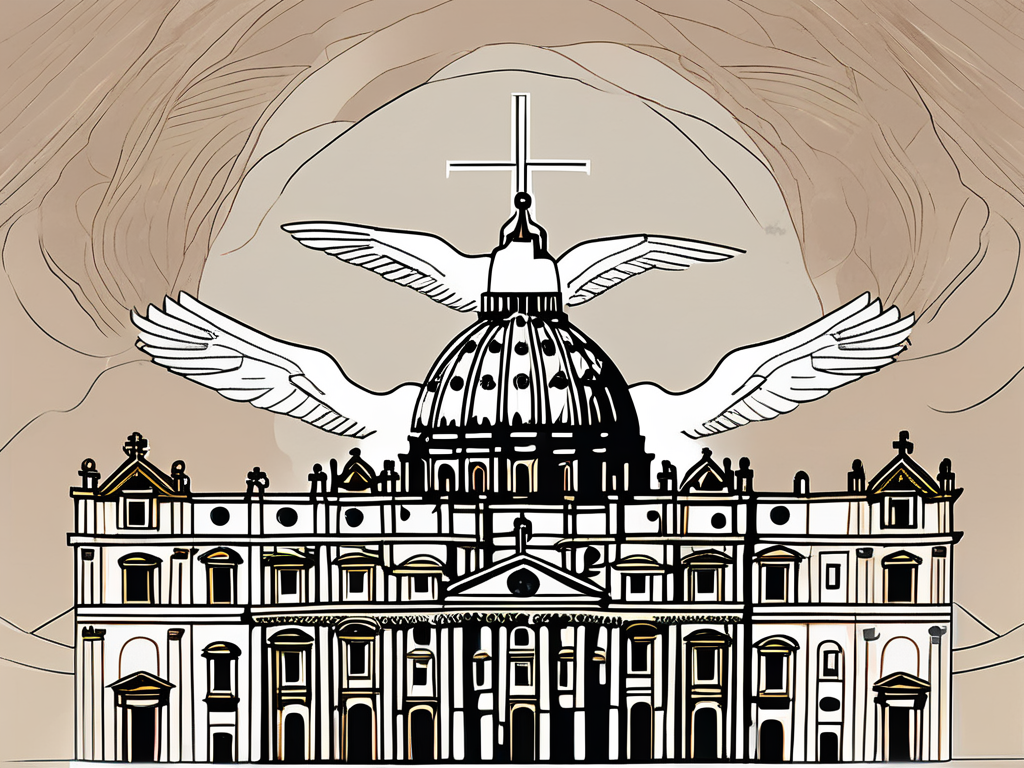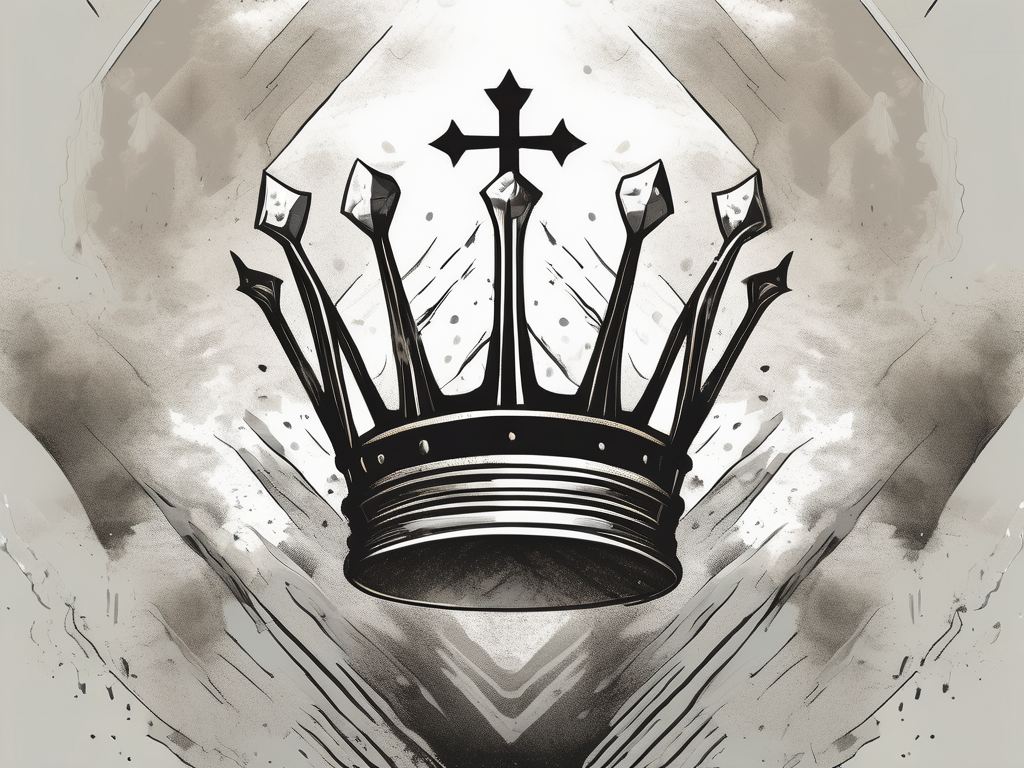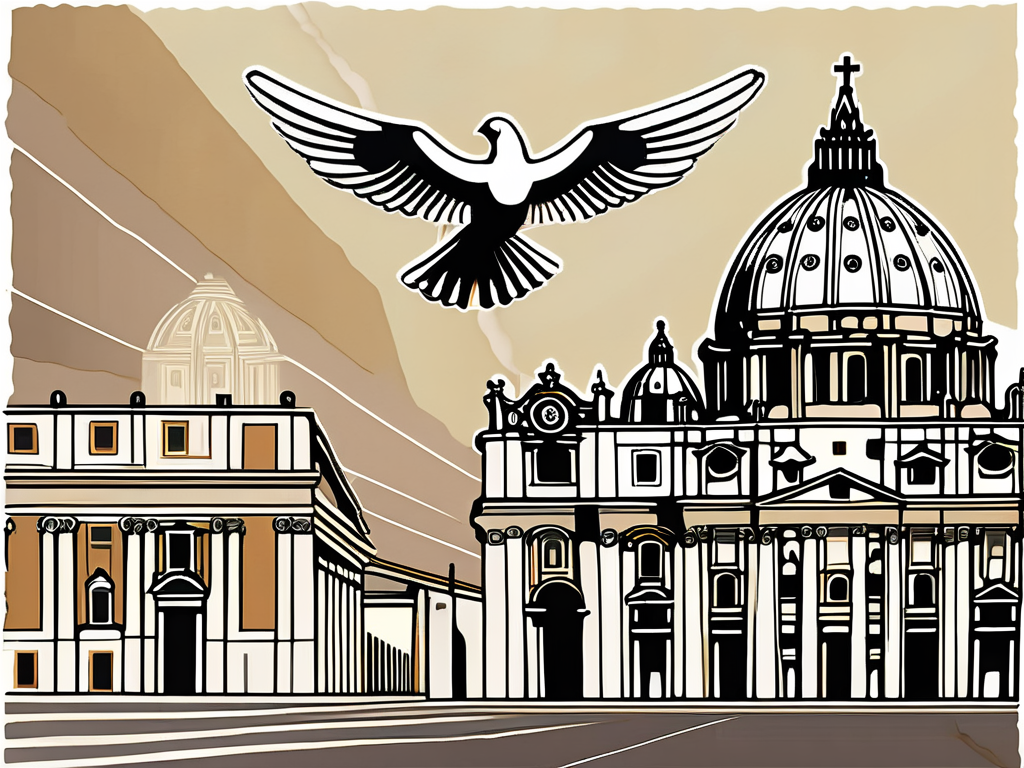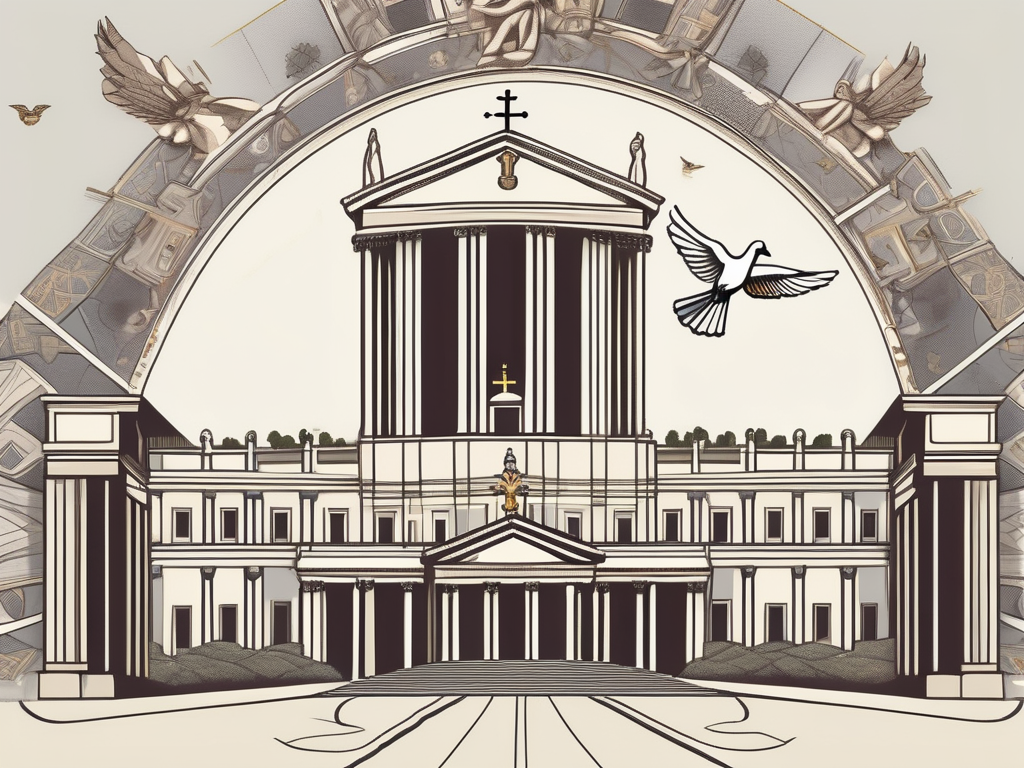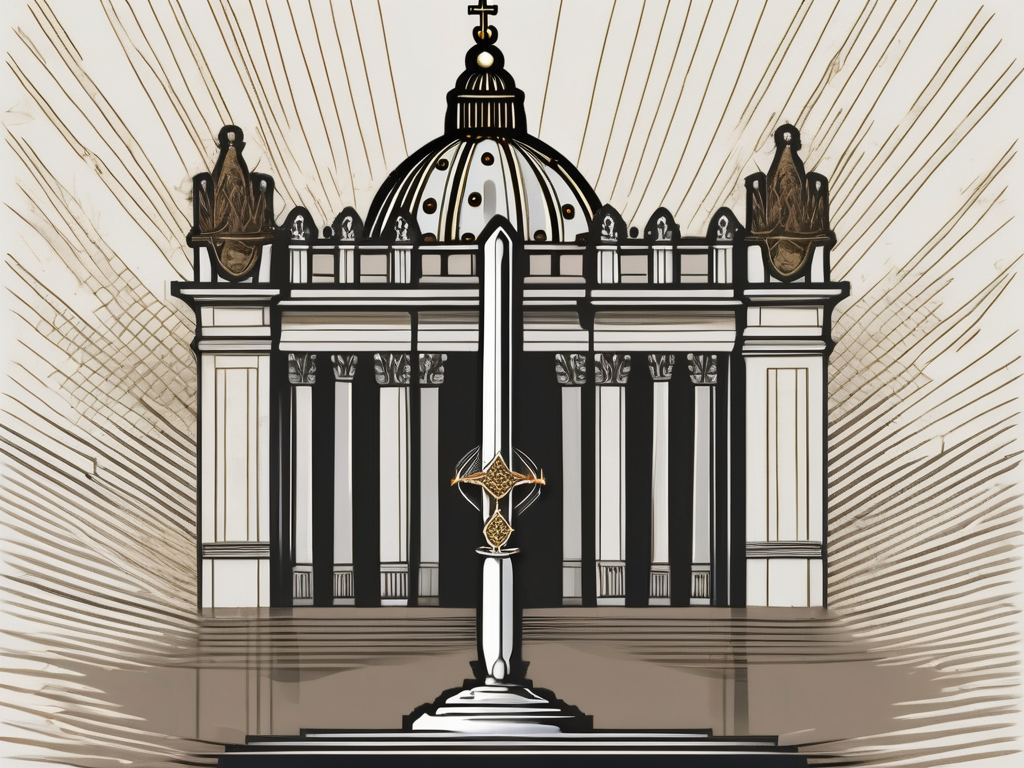Pope John XII was one of the most polarizing figures to ever sit on the papal throne. His reign was marked by a series of controversies, scandals, and power struggles that continue to generate debate among historians and theologians to this day.
Early Life and Ascension to Papacy
John XII, whose birth name was Octavianus, was born into a prominent Roman family with deep-rooted connections to the Church. His father, Alberic II, held a high-ranking position in the Vatican, serving as the Senator of Rome and the ruler of the Papal States. Growing up in such an influential household, it was almost inevitable that John would be drawn into the intricate web of ecclesiastical politics.
Despite the expectations placed upon him by his family’s prestigious background, John did not initially harbor aspirations of becoming the pope. Instead, he showed a keen interest in the arts and literature, often immersing himself in the works of renowned philosophers and poets. His intellectual pursuits set him apart from his peers and hinted at a future that would be anything but ordinary.
However, fate had a different plan in store for John. In a twist of events that would shape the course of his life, the previous pope suddenly passed away under mysterious circumstances. The College of Cardinals, faced with the daunting task of selecting a successor, found themselves captivated by the youthful charisma and potential they saw in John.
At just 18 years old, John was thrust into the papal throne, making him one of the youngest popes in history. This unexpected ascension raised eyebrows and fueled rumors of foul play, casting a shadow of doubt over his legitimacy. Whispers of political maneuvering and behind-the-scenes machinations echoed through the hallowed halls of the Vatican, laying the groundwork for the controversies that would define his tumultuous reign.
As John XII assumed his position as the spiritual leader of the Catholic Church, he faced a daunting task. The Church was embroiled in a power struggle with various noble families, each vying for influence and control over the papacy. John, with his youthful energy and determination, sought to navigate these treacherous waters and assert his authority.
Despite his relative inexperience, John quickly proved to be a shrewd and resourceful leader. He skillfully played the political game, forging alliances and making strategic decisions that would shape the course of his papacy. His natural charisma and charm won over many of his detractors, while his unwavering commitment to the Church’s teachings endeared him to the faithful.
However, not everyone was enamored with John’s rise to power. His youth and inexperience made him an easy target for those who sought to undermine his authority. Accusations of nepotism and corruption began to circulate, with some claiming that John was more interested in indulging in worldly pleasures than tending to his spiritual duties.
Amidst these swirling controversies, John XII faced a constant battle to maintain control over the papacy and preserve the Church’s integrity. The challenges he encountered would test his mettle and force him to make difficult decisions that would shape his legacy for centuries to come.
Controversies and Scandals
Almost immediately after assuming the papacy, John XII found himself entangled in a web of scandals and controversies. Allegations of immorality swirled around him, with stories of extravagant parties, debauchery, and even allegations of murder. While some of these accusations were likely exaggerated or politically motivated, there is ample historical evidence to suggest that John’s behavior was far from saintly.
Allegations of Immorality
One of the most damning aspects of John’s reign was his alleged moral indiscretions. He was known for indulging in lavish festivities and surrounded himself with a circle of questionable characters. Rumors circulated of orgies and affairs, tarnishing the papacy’s reputation and stunning faithful followers.
However, it is important to note that the papacy has seen its fair share of scandals throughout history. John XII’s behavior, while shocking, was not entirely unprecedented. Previous popes had also faced accusations of immorality, highlighting the complex and often contradictory nature of the papal office.
Furthermore, it is worth considering the political climate of the time. The papacy was not only a religious institution but also a powerful political entity. The struggle for power and influence often led to questionable actions and alliances. In this context, John’s alleged immorality can be seen as a reflection of the turbulent times rather than a personal failing.
These allegations of immoral behavior were not limited to John’s personal life. Reports emerged of simony, the practice of buying and selling church offices, which undermined the integrity of the Vatican and further enraged his critics.
Simony was a widespread problem during the medieval period, and John XII was not the only pope to be accused of engaging in this corrupt practice. The papacy, as an institution, faced constant pressure to maintain its wealth and power, leading to compromises and moral compromises.
It is important to remember that John XII’s papacy occurred during a time of great political instability and conflict. The struggle for power and control was rampant, and the papacy was not immune to these influences. While John’s alleged immorality is certainly a stain on his legacy, it is crucial to view it within the broader historical and political context.
Political Manipulations and Power Struggles
In addition to his personal scandals, John XII was no stranger to political manipulations and power struggles. He often used his influence to meddle in secular affairs and consolidate his power. This drew the ire of many nobles and leaders who saw his reign as a threat to their own authority.
John’s conflicts with the Holy Roman Empire were particularly significant. The struggle for control over territories and the assertion of authority over the Church created tensions between John and the Holy Roman Emperor Otto I. This power struggle not only weakened John’s position within the Church but also put the papacy in a precarious position with secular powers.
However, it is important to note that the papacy has a long history of engaging in political maneuvering. Popes often found themselves caught between the competing interests of various rulers and factions, and John XII was no exception. The political landscape of medieval Europe was complex and volatile, and the papacy had to navigate these challenges to maintain its influence and authority.
John’s actions, while controversial, can be seen as part of a broader pattern of papal involvement in secular affairs. The papacy, as the spiritual and political leader of the Catholic Church, was often called upon to mediate conflicts and assert its authority. John’s attempts to consolidate his power and influence were, in many ways, a reflection of the papacy’s role in the medieval world.
In conclusion, John XII’s papacy was marked by controversies and scandals that tarnished the reputation of the Church. Allegations of immorality and political manipulations surrounded him, painting a picture of a pope whose actions were far from saintly. However, it is important to view these scandals within the broader historical and political context of the time. The papacy, as an institution, has faced numerous challenges throughout its history, and John XII’s reign was no exception. Understanding the complexities of the medieval world can shed light on the motivations and actions of this controversial pope.
Theological Contributions and Criticisms
Despite the controversies that plagued his reign, Pope John XII made significant theological contributions and enacted reforms that made a lasting impact on the Catholic Church.
Reforms and Innovations
During his tenure, John XII implemented a series of reforms aimed at improving the organization and efficiency of the Church. He standardized liturgical practices, established clear guidelines for the clergy, and introduced measures to combat corruption within the Church’s ranks.
Furthermore, John’s reign saw noteworthy innovations in papal administration. He recognized the importance of diplomacy in maintaining the Church’s influence and fostered relations with various kingdoms and states, seeking to solidify alliances and protect the Church’s interests.
Critiques from Clergy and Laity
However, John XII’s reforms were not without their critics. Some within the clergy accused him of overstepping his authority and disregarding traditional church hierarchy. They felt that his actions undermined the authority of bishops and other religious leaders.
Additionally, sections of the laity viewed John’s reforms as an attempt to centralize power within the papacy at the expense of local autonomy. This led to divisions within the Church and fueled discontent among those who felt marginalized or oppressed by the new hierarchy.
Relationships with Secular Powers
John XII’s relationship with secular powers played a significant role in shaping his reign. His interactions with the Holy Roman Empire and other nations defined the political landscape of the time.
Tensions with the Holy Roman Empire
The clash between Pope John XII and the Holy Roman Emperor Otto I was emblematic of the power struggle between the papacy and secular authorities. This confrontation was about more than just territory; it was a battle of wills, with each side vying for supremacy.
Ultimately, Otto I emerged victorious, asserting his authority over the Church and relegating John XII to a subordinate position. This marked a turning point in the relationship between the papacy and the Holy Roman Empire and set a precedent for future alliances and conflicts.
Diplomacy and Conflict with Other Nations
Aside from the Holy Roman Empire, John XII engaged in diplomacy and conflict with other nations, further shaping the political landscape of his time. He worked to secure alliances with neighboring states and navigated through complex webs of intrigue and power dynamics.
However, these diplomatic efforts were not always successful. John’s aggressive approach and desire for dominance often led to strained relationships and open conflicts. His legacy in this regard is one of both triumphs and failures.
Legacy and Historical Interpretations
Pope John XII’s reign left a lasting impact on the papacy, the Church, and the religious landscape as a whole. His actions, both positive and negative, continue to provoke debate among historians and theologians.
Impact on the Papacy and the Church
John’s controversial reign had significant implications for the papacy and its role within the Church. It highlighted the dangers of unchecked power and the need for accountability within religious institutions.
Furthermore, his reforms, though divisive at the time, laid the groundwork for future developments within the Church. Many of the changes he implemented set the stage for subsequent popes to continue building and shaping the institution.
Modern Perspectives on Pope John XII
In modern times, historians and scholars continue to grapple with the complexities of Pope John XII. Some argue that his scandalous behaviors and power struggles tarnished the papacy, while others emphasize his significant contributions to Church administration and theology.
Regardless of one’s interpretation, there is no denying that Pope John XII left an indelible mark on the papacy and the Church. His reign serves as a cautionary tale and a reminder of the complexities and challenges faced by those who hold positions of power and authority.
